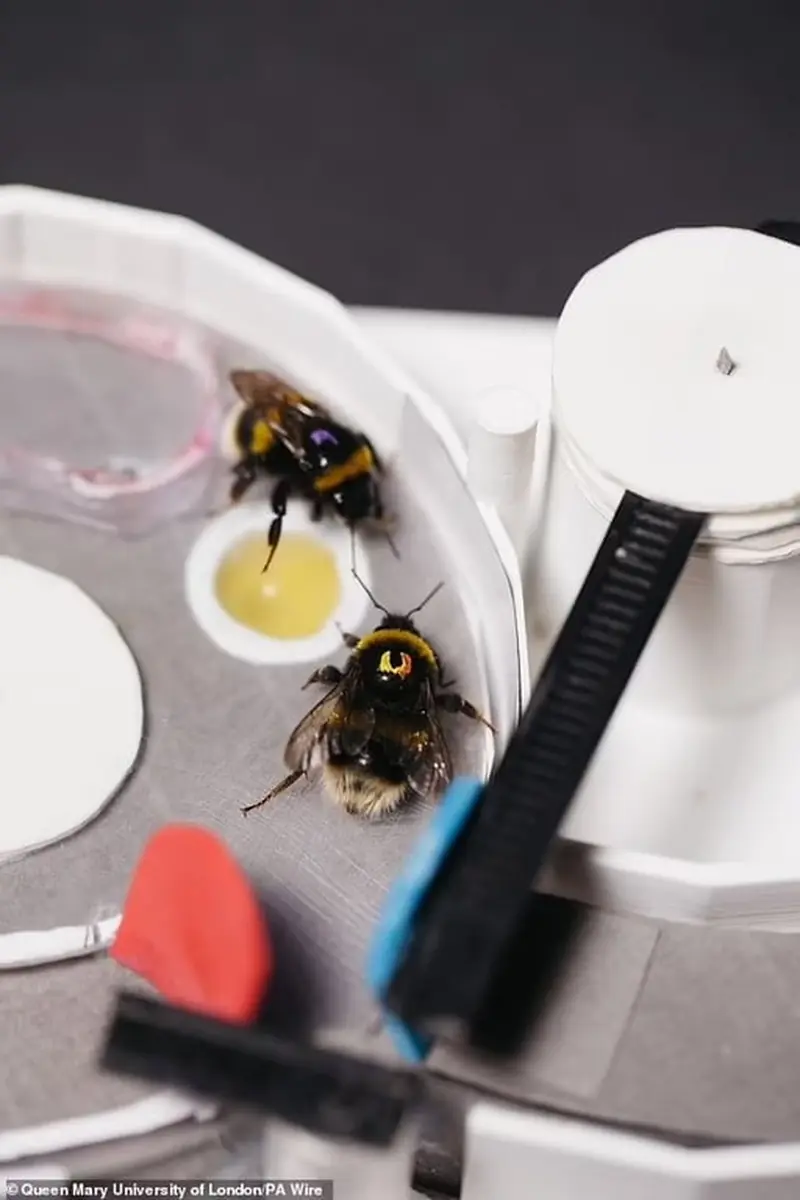A team of researchers from Queen Mary University of London has confirmed that bees possess a unique culture similar to that of humans. These insects teach each other how to solve complex puzzles, a behavior the scientists have dubbed “the culture of kindness.” So how did the researchers come to this conclusion?
Experiments involving a puzzle box demonstrated that bees learn to tackle a challenging task by observing their relatives, all in pursuit of a sweet reward. The researchers stated that bees are capable of mastering intricate tasks through social interaction, challenging the stereotype that such traits are exclusive to humans. Lars Chittka, a professor of sensory and behavioral ecology at the university, remarked, “This challenges the traditional belief that only humans can socially acquire complex behaviors that go beyond individual learning.”
In the initial phase of the study, individual bees were trained to solve a two-step puzzle. First, they had to press a blue lever to unlock a mechanism. Only then could they press a red lever to open the door and access a reward of sugar water. The bees struggled to grasp the sequence on their own, necessitating a training process that rewarded them for completing the first step before moving on to the second.
During the training, the team introduced bees that had not previously undergone any training. These observer bees watched the trained bees demonstrate the two-step task. Interestingly, the new bees quickly figured out how to perform the two actions in the correct order. However, when no trained bees were present to show them the steps, the newcomers became confused. They were unable to solve the puzzle independently through trial and error, as reported by the Daily Mail.

How did the scientists interpret these findings? Lead author Dr. Alice Bridges noted, “This task is extremely challenging for bees.” Initially, the team had to teach the demonstration bees to solve the puzzle for a reward, which highlighted the task’s complexity. While other bees learned the sequence of actions by observing these trained bees, Dr. Bridges added, “But when we allowed the other bees to attempt to open the box without a trained bee to demonstrate the solution, they were completely unsuccessful.”
The team stated that this research “opens exciting possibilities” for understanding how cumulative culture develops. Cumulative culture refers to the gradual accumulation of knowledge and skills over generations, enabling the refinement of ideas, technologies, and practices through collective intelligence. In an interview with The Times, Professor Lars Chittka said, “Imagine you threw children onto a deserted island. If they’re lucky, they might survive, but they would never learn to read or write. That’s because learning from previous generations is essential. It has long been thought that this kind of cumulative knowledge acquisition is unique to the human species.” However, bees have demonstrated through their behavior that this assertion is not accurate.
The findings of this study were published in the journal Nature. Meanwhile, another study reported by Nature Human Behaviour revealed that chimpanzees can also acquire new skills by observing one another. In this research, Dutch and Belgian scientists taught chimpanzees to solve a puzzle box. A participant had to open it in three steps to receive a tasty reward, and then pass this knowledge on to 14 relatives.

